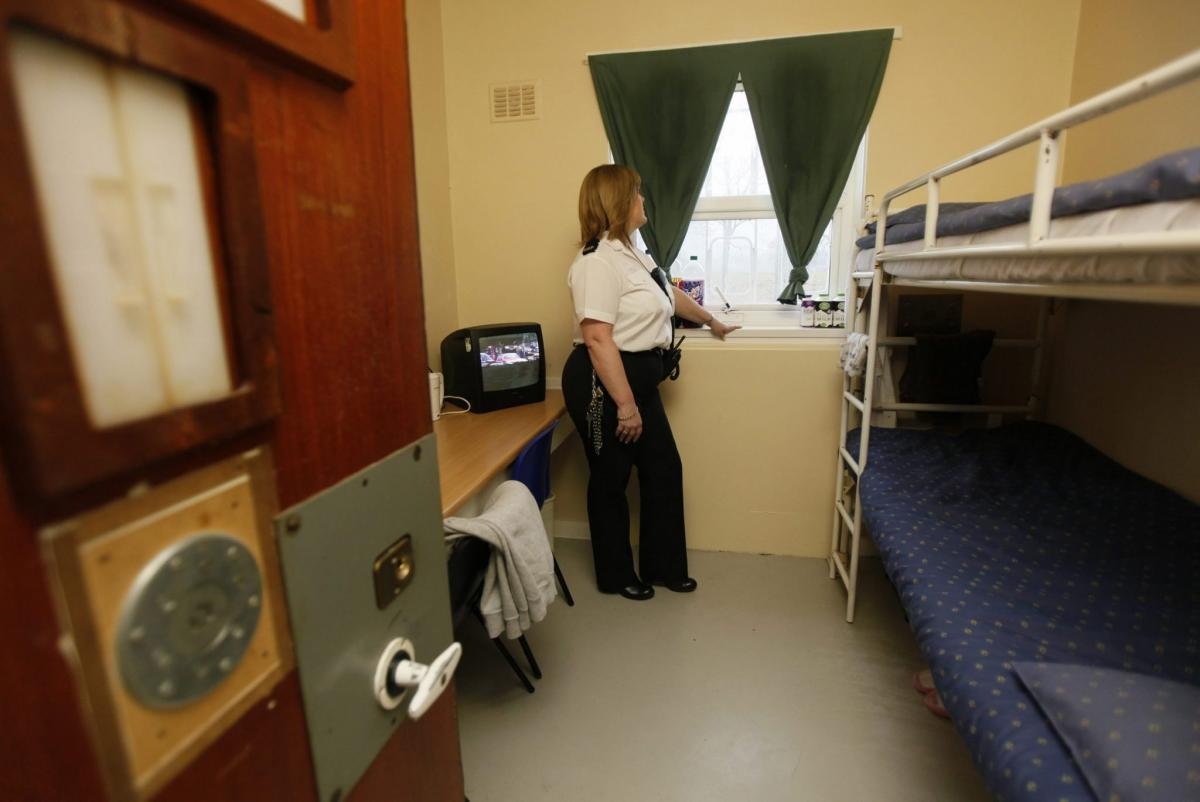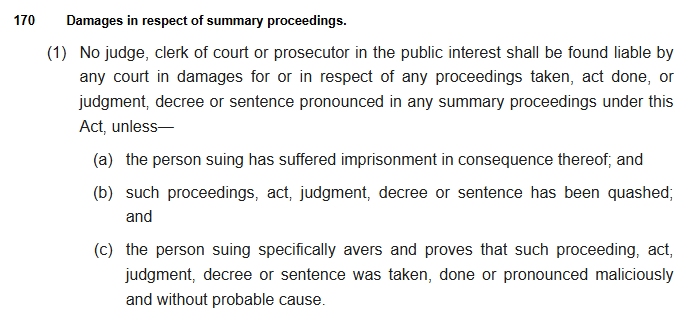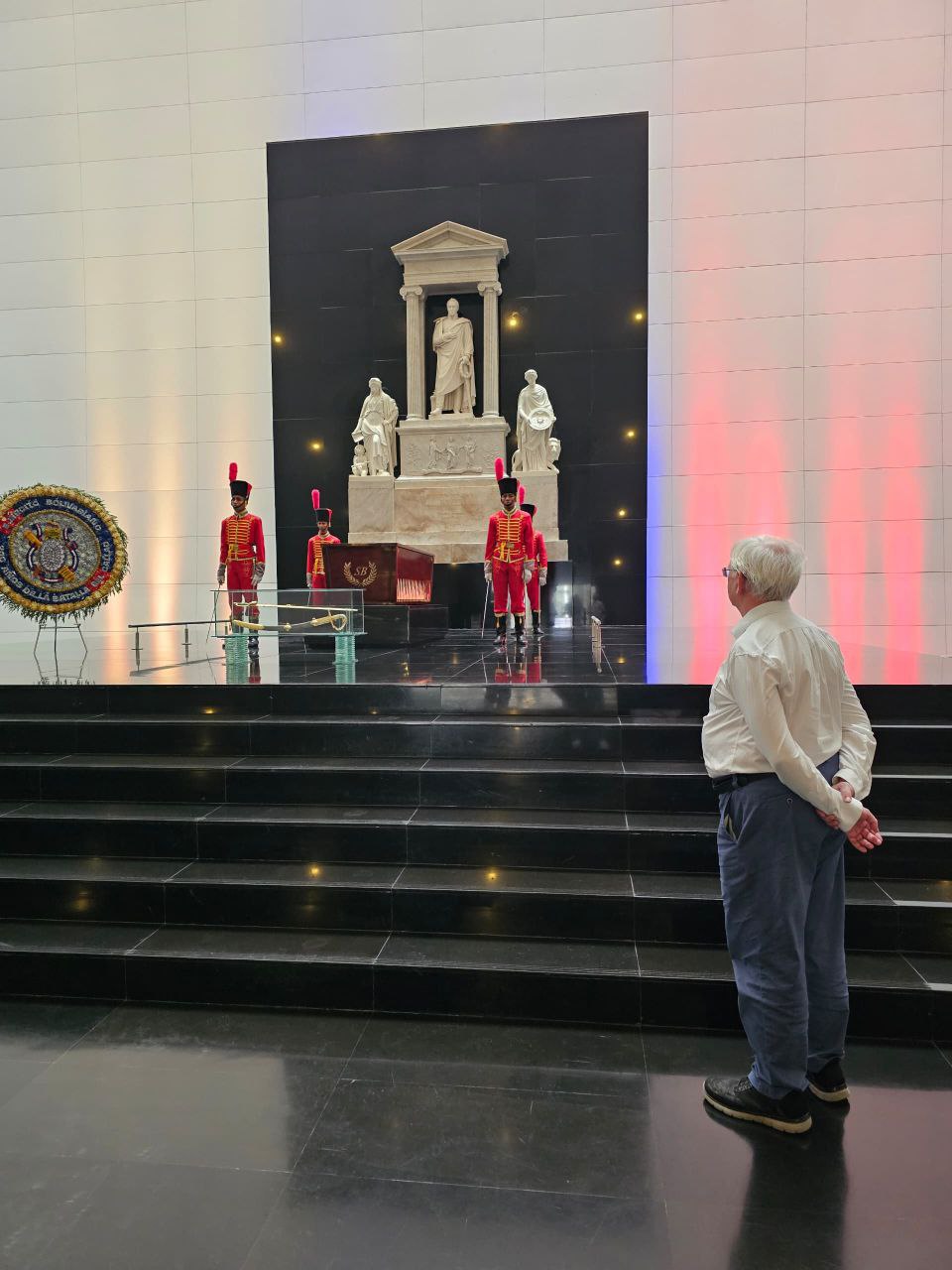DETERMINANTS OF INDEPENDENCE COLONIALISM
Paper 4 in the ten part weekly series by Professor Alf Baird which is having a big impact on political debate in Scotland. Each week the number of readers and comments increase as more people arm themselves with this information in our battle for Scottish Independence. Pay particular attention to the section headed Fanon. IContinue reading "DETERMINANTS OF INDEPENDENCE COLONIALISM"
Paper 4 in the ten part weekly series by Professor Alf Baird which is having a big impact on political debate in Scotland. Each week the number of readers and comments increase as more people arm themselves with this information in our battle for Scottish Independence. Pay particular attention to the section headed Fanon. I read this section being very aware these characteristics are now clearly present in the SNP Government today. We need very different tactics and people sufficiently courageous to take on the challenges that are needed. Sadly I just can’t see the current SNP leadership fitting that bill in any shape or form.

4. COLONIALISM
‘We have seen that colonization materially kills the colonized. It must be added that it kills him spiritually. Colonization distorts relationships, destroys or petrifies institutions, and corrupts men, both colonizers and colonized. To live, the colonized needs to do away with colonization. The liquidation of colonization is nothing but a prelude to complete liberation, to self-recovery.’
(Albert Memmi)
The quest for national independence and self-determination of ‘a people’ is invariably regarded as decolonisation, not least by the UN which retains a committee (C-24) for that very purpose. This also raises the question as to whether or not Scotland is a colony. Constitutionally, Scotland remains a signatory party to a treaty-based alliance (the UK union), and the Scots are regarded as a sovereign people, which suggests Scotland is not a colony. However, what is perhaps more important here is the practical and political realities of Scotland’s experience and ongoing treatment within the UK alliance arrangement. Just like any alliance, joint-venture, or even marriage contract, all is perhaps not what it appears on the surface.
Here we might first consider that colonial territories and peoples are usually subject to external control over their laws, culture, language, political leadership, land and resources;each of these external controls noticeably figure highly in the case of Scotland. Moreover, what independent countries take for granted, colonies often do not have. Scotland is not globally competitive, for example, its economy has been stagnating for a very long time, a consequence of resources being exploited cheaply (via the UK ‘alliance’) and with surpluses mostly intercepted and extracted rather than used to develop the country (i.e. Scotland) and its people.
In the world of commerce an independent country has an opportunity to do whatever it needs to do in order to develop a competitive advantage, whereas a colony and its people are generally held back through exploitation, discrimination and external control by an ‘administrative Power’, leaving them under-developed. In this sense a colony is organised primarily to serve the needs of the ‘mother country’, in our case the UK/England, whereas an independent ‘liberated’ Scotland would (or should) be focused on developing Scotland and its people.
In being forced out of the EU against their will, Brexit demonstrated that, within the UK alliance the Scots are treated not as a sovereign people but as a subaltern people. The same applies with several recent successive Scottish electoral mandates secured in favour of holding a second referendum on independence, none of which have been respected by Westminster. In post-colonial studies the term ‘subaltern’denotes colonial populations that are socially, politically, and geographically outside the hierarchy of power of a colony, and outside of the empire’s metropolitan homeland. The Devolution arrangement itself also reflects a colonial reality as distinct from a sovereign member nation and signatory party in a joint alliance arrangement.
Despite the Scots being a sovereign people and signatory party to the Treaty of Union, Scotland therefore appears to demonstrate only too well the three essential defining features of a colony, which are:
• Scotland is subject to full or partial political control by another country (i.e. England, the latter holding some 80% of seats in the UK parliament, Scotland lacking any veto);
• Scotland is exploited economically by the ‘administering Power’, and;
• Scotland has been and continues to be occupied by significant numbers of ‘settlers’ from the ‘administrative Power’, people from England comprising the largest ethnic migrant group in Scotland.
Related to this, Internal Colonialism theory contends that ethnic and cultural divisions within a ‘state’ are not removed in the course of its development or industrialisation, they remain in place and indeed may fester. In Scotland’s case, the institutionalization of an ethnic/cultural division of labour is evident. This division of labour is imposed on Scotland by the ruling Anglophone group and it associates deprivation and hence inequality not just with membership of an oppressed and exploited social class, but with membership of an oppressed and exploited ethnic group, i.e. the Scots speaking Scot. This brings us to the realisation that colonialism involves institutionalized racism and socio-linguistic prejudice.
In this the top jobs, the high wages, and the social status which comes with these things are reserved for members of the dominant elite culture which is Anglophone or (and, the qualification here is important) for members of the subordinate (Scots) group who choose to embrace the dominant culture (including language). In colonialism, it tends be the bourgeoisie native who seeks to protect their privileges and status through assimilation and by discarding their own culture and language, which in turn differentiates them from the mass of the indigenous community. Longstanding inequalities between England as core nation and the peripheral UK nations including Scotland reflect such characteristics in the context of internal colonialism.
This brings about a need, given ongoing momentum towards independence from the colonial power base, which is Anglophone, to consider the social basis of ethnic identity. There have been fundamental changes in the strength of ethnic solidarity in the United Kingdom in the nineteenth and twentieth centuries, however, many of the inhabitants of Scotland, Wales and Northern Ireland continue to maintain an ethnic identity and hence a national consciousness quite different from England. In the UK context, as elsewhere, it is apparent that ethnic identity is predominantly linguistically and culturally determined.
There is also a need to consider the discord between socioeconomic development and ethnicity. A common feature of Scotland’s meritocracy is an Anglophone elite hierarchy retaining control over the industrialisation process. However, the dominant position of Anglophone elites extends beyond industrialization to also control almost every aspect of public and social institutions, in government, state agencies, justice,education, healthcare, religion, transport, the third sector and more. Hence in the UK Celtic periphery, most institutions exhibit a colonial hierarchical structure.
In the Anglophone dominated internal colonialism reality that immerses and controls Scotland, the Scots speaking Scot is generally rendered as, and reduced to, a minor and inferior ethnic participant parroting a supposedly ‘invalid’ language and made devoid of much in the way of status or opportunity. In other words, the Anglophone cultural hegemony dominatedUK ‘union’ which essentially treats Scotland as a colony, renders the working-class Scots speaking Scot much like Jimmy Reid’s ‘alienated worker’, and little better than Nietzsche’s Untermensch (‘inferior people’). This oppressive reality reflects and merits the strongest desires for independence (and hence decolonisation) amongst the Scots speaking oppressed group who comprise the bulk of the independence movement.
Devolution illustrates the unequal status between the Celtic ‘fringe’ nations of Scotland, Wales and Northern Ireland and ‘core nation’ England. British ‘unionism’ is an Anglophone hegemonic transnational nationalist political ideology, an especially dominating form of nationalism, as history confirms. British ‘unionism’ might also be viewed in the context of England’s need for Lebensraum, the Celtic fringe offering space, resources and an altruistic, egalitarian, welcoming and trusting, if somewhat naive peoples serving an over-populated, unscrupulous Anglophone elite and unsympathetic ‘core’.
Analysis of post-colonialism literature and associated theoretical perspectives enables us to better understand the phenomenon of colonialism and its outcomes vis-à-vis Scotland.
Professor Edward Said
Colonialism gave elites: ‘the power to scheme grandly, subordinating peoples by banishing their identities, except as a lower order of being.’ In this pursuit: ‘the cultural processplayed an indispensable role…as a vital, informing, and invigorating counterpoint to the economic and political machinery at the material centre of imperialism.’ This emphasizes the important role of Cultural and Linguistic Imperialism in Scotland and the concentration on (Scots) language oppression. In the context of Scotland’s governance,including Devolution, we see that: ‘The national bourgeoisies tended to replace the colonial force with a new class-based and ultimately exploitative one, which replicated the old colonial structures in new terms.’ This colonial meritocracy is replenished by: ‘The great colonial schools (which) taught generations of the native bourgeoisie the history of France of Britain (whilst) also demoted the native (i.e. Scottish) history.’And again, language appears a key factor in subjugation, this from Joyce’s Stephen Dedalus: ‘The language we are speaking is his before it is mine. His language, so familiar and so foreign, will always be for me an acquired speech. Colonialism is an aspect of Imperialism where: ‘Imperialism after all is an act of geographical violence. For the native, the history of colonial servitude is inaugurated by loss of the locality to the outsider; its geographical identity must thereafter be searched for and somehow restored. Which brings us to consider some of Imperialism’s core objectives, in that: ‘Colonial space must be transformed sufficiently so as no longer to appear foreign to the imperial eye. This ‘incorporation’ involves certain policies, for instance: More than any other of its colonies, Britain’s Ireland was subjected to…repeated settling projects’ (and) ‘What was done in Ireland was also done in Bengal or, by the French, in Algeria’, and is not entirely unknown in Scotland either. And yet again we return to the importance of language, because only liberation provides for: ‘The decolonized entity (which experiences) an almost magically inspired, quasi-alchemical redevelopment of the native language.’ And with that, the critical importance of national identity becomes ever clearer as we see that: ‘The imperial relationship is there in all cases. Irish people can never be English any more than Cambodians or Algerians can be French. In every colonial relationship an absolute hierarchical distinction remains constant between ruler and ruled, whether or not the latter is white.’
Professor Michael Hechter
Yet how is colonialism ‘enabled’ other than via: ‘The docility of….Scotland was achieved by the co-option of regional elites….a precursor of Lord Lugard’s famed colonial policy of ‘indirect rule’. This resulted in the: ‘Widening cultural identification between gentry and ordinary people (which) may be fruitfully seen as a product of the colonial situation.’Inevitably requiring the native elite to cast aside its own culture, language, and people, viz: ‘The conscious rationale behind anglicization among the peripheral elite was to dissociate themselves as much as possible from the mass of their countrymen’. And in the UK’s supposed ‘alliance’ or ‘union’ context, basically: ‘what we are talking about is the colonial incursion of England into the Celtic lands’. For this artificial UK ‘political construct’ to work thus required the Scottish: ‘gentry to shed their language and mores to become Englishmen in fact, as well as in name.’ The ordinary people see this of course, in that: ‘The gentry were defined as enemies, not only because of their wealth, but because of their conversion to another culture, that of England’. Colonialism remains prejudice, racism, and worse, not least because to be English-speaking within the UK Celtic periphery: ‘was to be culturally privileged – just as it is today in neo-colonial cities like Accra or Lagos’. Within the Celtic Periphery this also meant that the English held: ‘a disproportionate share of jobs in managerial and commercial categories’. Subsequent socio-linguistic prejudice and ethnically oriented inequalities thus giving rise to: ‘The phenomenon of Celtic nationalism (which) may be seen as a political response to the persistence of regional inequality’. And which is due to: ‘Ethnic discrimination (as a) characteristic of English attitudes towards the Celtic areas’, e.g. with investment capital being concentrated in England. Celtic periphery nations were thus primarily organised to be economically specialized: ‘in the subordinate position of supplying materials and cheap labour’ (and) ‘directed to supplying the needs of the metropolitan core’. This meant colonialism has rendered the periphery nations vulnerable because: ‘The structural consequences of colonial development were such that the country and the people were laid bare and defenceless to the play of the market forces as redirected only by the interests of the foreign metropolitan power’. But of course, the core nation always ensured its own advantage: ‘In contrast to the highly specialized nature of Celtic economic structure….the industrial economy of England was diversified and hence…much less vulnerable’.
As a consequence of this hierarchical arrangement: ‘Internal structural differences between the Celtic periphery and England are reminiscent… of less developed societies, which arose as a function of their colonial mode of development’. Development occurred in a largely dependent mode… and special diffusion of industrialisation in the Celtic lands was considerably restricted… and excessively specialized. The persistence of systemic disadvantages…from policies discriminating against the Celtic periphery.. has been described as institutionalized racism’. And in this the inevitable exploitative nature of colonialism becomes evidentin that: ‘The situation of the Celtic fringe in the British Isles is analogous in several respects to that of less developed countries’. And let us not forget what lies at the root of colonialism, namely: ‘When long-term differences in aggregate rates of development are the result of ethnic stereotypes, it is appropriate to speak of institutional racism’.
Albert Memmi
So here is what ‘dependence’ means for a colonised people: ‘The colonial relationship chains the colonizer and the colonized into an implacable dependence, (and has) molded their respective characters and dictated their conduct.’ This process is aided by the native bourgeoisie who ‘mimic the colonizer’ in his culture and language in order to retain their status and privileges under colonial rule. There is however a price to be paid for such an ‘arrangement’ in that: ‘The deprivations of the colonized are the almost direct result of the advantages secured to the colonizer.’ In addition to the ever-present racism and prejudice, given that: ‘Racism is built into the system: the colony sells produce and raw materials cheaply, and purchases goods at very high prices from the mother country. Racism is ingrained in actions, institutions, and in the nature of the colonialist methods of production and exchange.’ And yet an inevitable question remains: ‘How can an elite of usurpers, aware of their mediocrity, establish their privileges? And the answer to this is: By one means only: (by) debasing the colonized to exalt themselves.’ Decolonisation is never therefore a conflict between capitalism and socialism or policies on this and that, because: ‘There is no connection between the liberation of the colonized and a left-wing (or right-wing) program. The only task at the moment is that of freeing the people.’ We should nevertheless be clear on the matter of who independence is about and who it is for, given that: ‘The destiny of the colonized does not concern him (the colonizer) and that what the colonized do with their freedom concerns them only.’ And, considering that colonialism is also racism, we should not be surprised that ethnicity sits at the very core of this matter, in that: ‘Being oppressed as a group, the colonized must necessarily adopt a national and ethnic form of liberation.’ For an oppressed people such as the Scots to be really free, thus necessitates: ‘Assimilation being abandoned (because) attempts at imitating the colonizer required self-denial.’ And in this regard: ‘the colonizer’s rejection is the indispensable prelude to self-discovery’ of the colonized people themselves.
Frantz Fanon
Much as we now see with the SNP today, a dominant National Party will tend to make its own ‘accommodation with colonialism’ which stops far short of liberation. Matters become clearer once the dominant National Party steps aboard the colonial gravy train and it soon becomes evident that: ‘Their objective is not the radical overthrowing of the (colonial) system.’ Here we recognise their close resemblance to former colonial parties as: ‘The notion of the party is a notion imported from the mother country’. Middle class elites running the National Party are not intellectuals and do not fully appreciate their purpose so they will look to promote other ‘priorities’ in which: ‘The elite will attach a fundamental importance to organization (and focus on administration which) will often take precedence over a reasoned study of colonial society.’ Which implies that, inside the dominant National Party: ‘the will to break colonialism is linked with another quite different will: that of coming to a friendly agreement with it.’ Which in turn dovetails nicely with the role of the colonizer, in which: ‘The settler’s work is to make even dreams of liberty impossible for the native.’ The dominant National Party will even support colonial forces to hold back momentum towards liberation and in this regard: ‘The party elite will disown the revolutionary elements’ (and) ‘The party helps the government to hold the people down…becomes more and more clearly anti-democratic, an implement of coercion’. Discovering this reality dismays the ordinary independence supporter who: ‘..realizes that while he is breaking down colonial oppression he is building up automatically yet another system of exploitation’ (which) ‘discovery is unpleasant, bitter and sickening.’ The party elite becomes ‘petrified’, unable and unwilling to move forward on the matter of national liberation, and: ‘The party machine shows itself opposed to any innovation’ to break the nation free. Hence little changes with a single dominant National Party, which soon leads to the creation of new national parties more focused on the true purpose and goal of liberation, reflecting that: ‘Colonization is a motionless, petrified world.’And with political persecutions and goings-on we return to the reality of the situation in that: ‘The colonial regime owes its legitimacy to force (and) the native hardly ever seeks for justice in the colonial framework.’ The people begin to better comprehend that: traditionally colonialist country?’ And here we return to the reality of the situation, in which: ‘Colonial status is simply the organized reduction to slavery of a whole people.’
Aime Cesaire
Scots must now be made aware of the irreversible consequence and danger of permitting their prolonged colonialism to continue, given that: ‘The iron law of colonialist capitalism (is) of a society that is not only perishable but already in the process of perishing.’ On the question of national development, which is enormously constrained through colonialism: ‘it is the colonized man who wants to move forward, and the colonizer who holds things back.’ Lest we forget what a colonial people are subject to, and that: ‘Colonialism has grafted modern abuse onto ancient injustice, hateful racism onto old inequality.’ And, rather than Scotland being a valued UK alliance ‘partner’, let us belatedly discern that: ‘Colonial activity, colonial enterprise, colonial conquest…is based on contempt for the native and justified by that contempt.’ In this, the reality of the charade of ‘union’should be more than sufficient to remind the Scots that: ‘No-one colonizes innocently, no-one colonizes with impunity either; a nation which colonizes, a civilization which justifies colonization – and therefore force – is already a sick civilization, a civilization which is morally diseased.’ And,specifically in relation to the matter of the 1707 Treaty of Union, we may conclude that: ‘Between colonization and civilization there is an infinite distance; that out of all the colonial expeditions that have been undertaken, out of all the colonial statutes that have been drawn up, out of all the memoranda that have been despatched by all the ministries, there could not come a single human value.’ In this we are reminded of the place we are in, and that: ‘Fascism is the application of colonial procedures’ (and) ‘Civilization helps us locate the origins of fascism within colonialism’. Finally,on the rationale for independence and national liberationitself, which is: ‘not posed in terms of capitalism versus socialism, but in terms of the complete and total overthrow of a racist, colonialist system that would open the way to imagine a whole new world.’
Scotland’s longstanding colonial subjugation contained within the mirage of British ‘unionism’ has resulted in an exploited land and an ever diminished and subjugated people and culture, discriminated against and ‘doun-hauden’ (oppressed)by an Anglophone elite representing and protecting the interests of a ruling ‘administrative Power’. Ultimately thereare only two options with colonialism: assimilation and hence continued subjugation and oppression, or; independence and decolonisation.
Independence is therefore a fundamental necessity for Scotland as only sovereignty can fully enable and encourage the development of Scotland and its people, whilst at the same time protecting a threatened culture, language and nation.
MY COMMENT
My thanks to Alf for sharing these excellent papers via my blog. Each week the numbers of readers increase and good debates follow over several days afterwards. Exactly what I hoped would happen. It never hurts to know more about these topics when discussing Independence.
I am, as always
YOURS FOR SCOTLAND.
BEAT THE CENSORS
Unfortunately a number of pro Indy sites have turned out to be merely pro SNP sites and have blocked a number of bloggers, including myself. We have managed to frustrate these efforts to close us down through our readers sharing our articles and building our audience. In addition many have taken out free direct subscriptions. I very much appreciate this support.
Free Subscriptions
Are available on the Home and Blog pages of this website. By taking out a subscription you will receive notification of all future posts. You will be most welcome.
Professor Baird’s Book
Is called Doun Hauden and is available from Amazon UK.
What's Your Reaction?











































